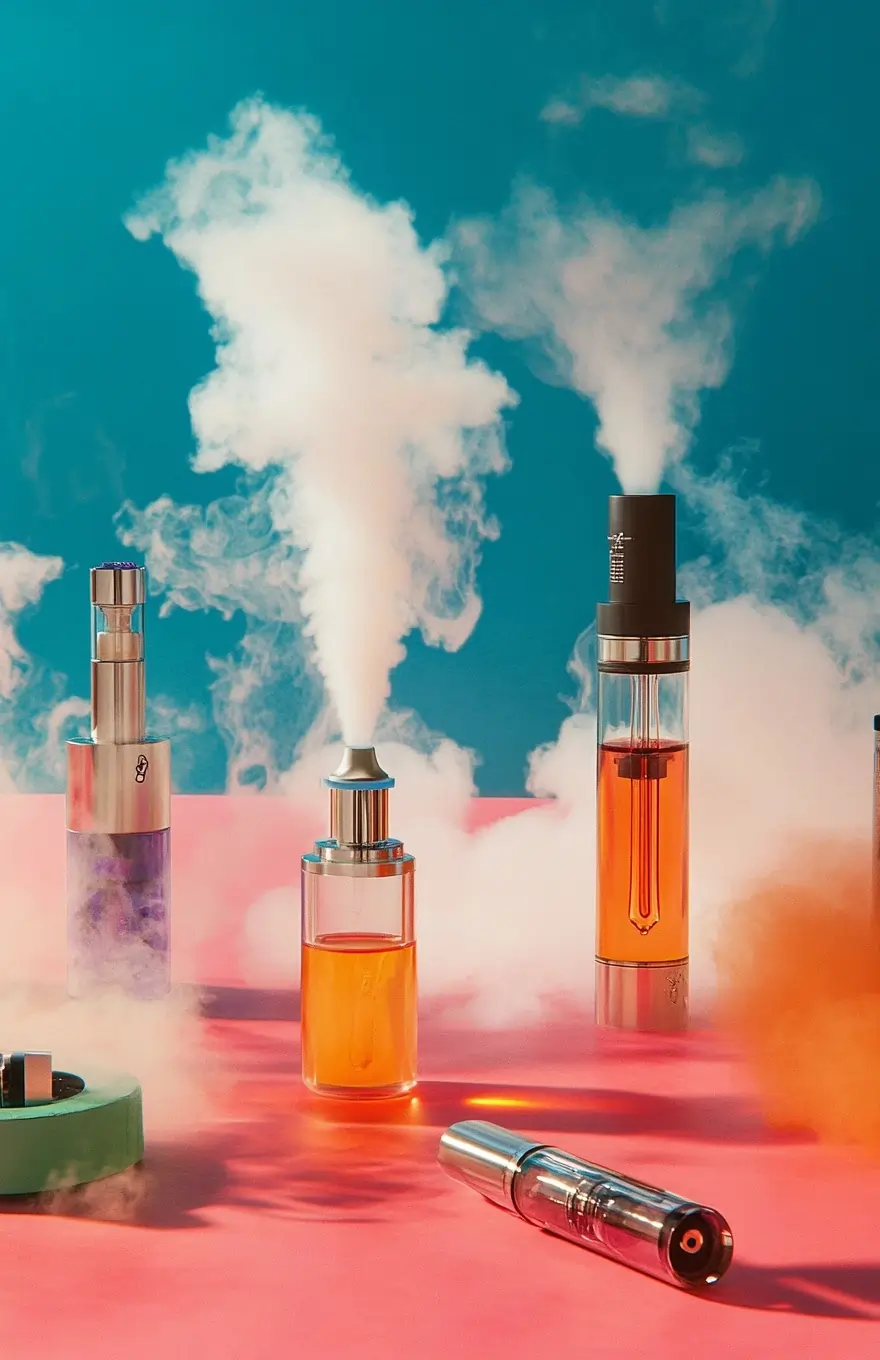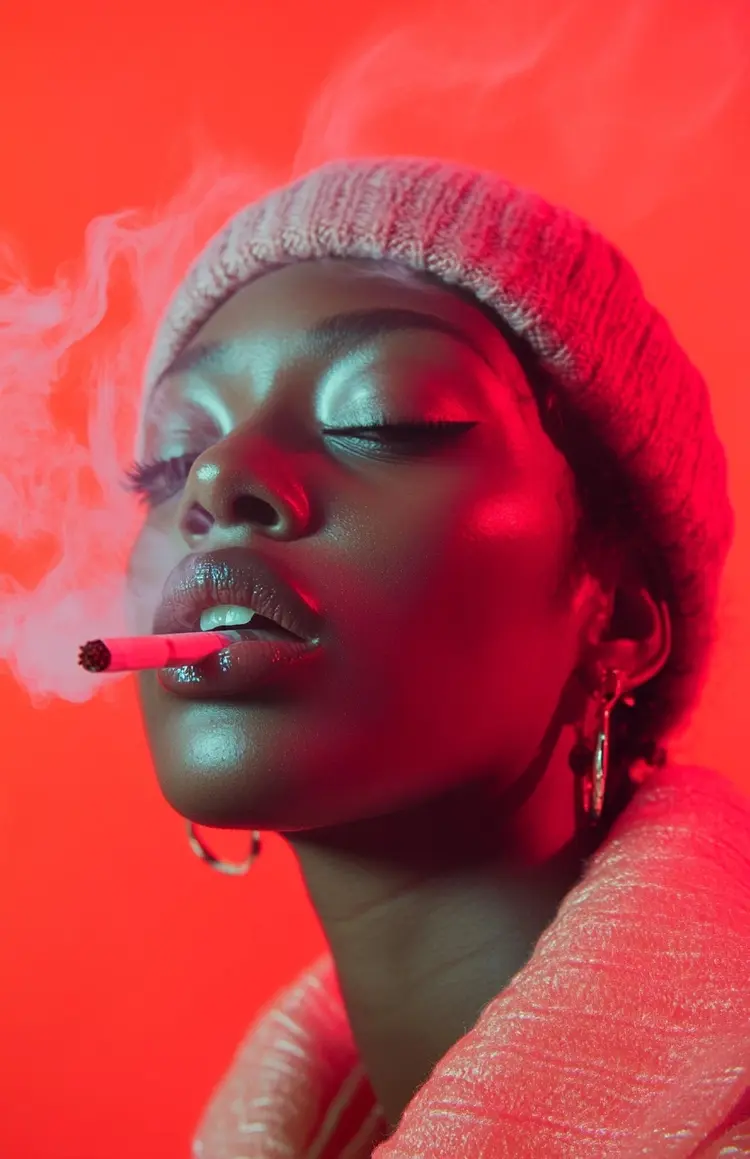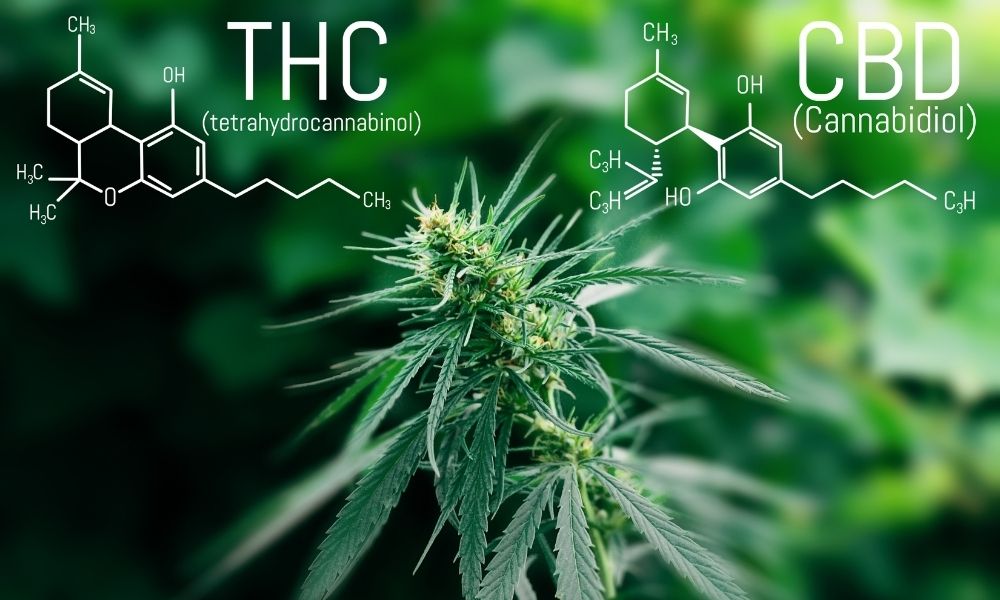

So you accidentally ate marijuana edibles at a party, and you start to feel the intoxicating side effects. Luckily, your friend has CBD oil available, and you are wondering, “does CBD counteract THC?”
In some ways, it does. But the relationship between CBD and THC is complex. These cannabinoids can affect the body differently. It is essential to understand what each does and their unique effects.
The properties of these two compounds create different reactions within our bodies. Recently, researchers have studied both chemicals to understand how they work with each other. After reading this article, you will have a greater understanding of how THC and CBD interact with each other.
CBD or cannabidiol is a compound found in cannabis sativa plants like hemp. CBD is one of over one hundred cannabinoids found in hemp. CBD-derived from hemp is legal in the United States and is used to make oils, tinctures, isolates, gummies, and other treats.
Since hemp cultivation became legal, thanks to the 2018 Farm Bill, CBD began rising in popularity. CBD products support the body’s internal balance, making it one of the most in-demand products for people seeking natural alternatives.
Under federal regulations, legal CBD must come from hemp and contain 0.3% or less THC. THC is the ingredient responsible for making people feel high. The amount of THC in legal THC products is so low that it should not cause these unwanted, intoxicating effects.
CBD is preferred by some people because it does not produce the psychoactive effects of THC. Researchers are learning more about how CBD affects the body every year. Overall, we know that CBD boosts homeostasis within consumers. Many report that it provides very calming sensations to the mind and body.
CBD is becoming more and more desirable because of the wellness boosts it provides. People use CBD products to soothe nervous feelings, relieve body soreness, ease joint swelling, promote clear skin, aid digestion, and get better sleep.
CBD can do all these things because of how it interacts with a consumer’s endocannabinoid system (or ECS for short). All human beings have an endocannabinoid system. This biochemical system is responsible for regulating different systems within the body.
Cannabidiol interacts with the cannabinoid receptors in this system to produce these effects. Depending on how you consume it, you can feel the effects of CBD immediately or within an hour. And depending on the product you use, the sensations can last for 30 minutes or up to 6 hours!
If you deal with more persistent issues, you will benefit from taking CBD regularly. In the case of daily ingestion, the peak results may appear within a few days to a week.

THC (short for delta-9-tetrahydrocannabinol) is the active ingredient in marijuana and is well-known for its psychoactive effects. Cannabis consumers enjoy THC for recreational and medicinal purposes. However, the intoxicating effects of THC may not be desirable for some consumers.
Like CBD, people consume THC in different ways. Some people inhale marijuana smoke, eat edibles, apply topicals, or consume THC tinctures. The levels of THC in these products can range from minimal to maximum potency.
THC is also famous in pop culture. The drug is referenced in music, art, and movies. Some states have legalized medical marijuana, but under federal law, it remains illegal due to the Controlled Substances Act of 1970.
In recent years, more states are either legalizing marijuana or decriminalizing it. This is terrific news for cannabis enthusiasts as it makes it easier for them to purchase their favorite products! Some states may have regulations in place to limit the levels of THC in cannabis products.
THC produces psychoactive effects. In other words, it can make consumers “high” or disoriented. Though this trait has given THC quite a reputation, research is exploring the ways THC can benefit people.
Like CBD, some consumers use THC to alleviate pain, enhance appetite, and improve their sleep. But, unlike CBD, THC can also come with undesirable effects.
Specifically, THC can be too intoxicating for some people. This can lead to feelings of paranoia and anxiety. Others can experience drowsiness or become “couch-locked.” Some cannabis consumers have experienced issues with their sleep schedules.
The effects of THC can appear almost immediately if inhaled. If you eat an edible, the effects can take 30 minutes to an hour to kickstart. The effects can last anywhere between 1 hour to a few hours, depending amount of THC and the way you consume it.
THC causes these effects by interacting with the endocannabinoid system within people. THC directly attaches to the receptors to produce these different effects. This bond also creates some side effects, such as turning a consumer’s eyes red.
The biggest difference between the two cannabinoids is that CBD doesn’t intoxicate consumers, and THC does. This is because CBD doesn’t directly attach to cannabinoid receptors, while THC binds right onto them.
you might have picked up on other similarities and differences between CBD and THC as you have read through. They are both cannabinoids that affect the endocannabinoid systems within consumers in distinct ways. Although they are the two most recognizable molecules in the cannabis plant, they share more differences than similarities.
CBD is the prominent cannabinoid found in hemp, whereas THC is the most prominent cannabinoid found in marijuana. Again, the key difference between both these cannabinoids is that CBD does not produce the psychoactive feelings associated with THC. Research shows CBD may counteract the effects of THC.
The way they interact with the endocannabinoid system differs as well. The endocannabinoid system is made up of receptors that also interact with the central nervous system. THC binds itself to the CB1 and CB2 receptors. This chemical reaction is responsible for causing intoxicating side effects from high THC levels.
CBD molecules do not bind to the CB1 and CB2 receptors like THC do, so there is no psychoactive effect with CBD. Cannabidiol interacts with other cannabinoid receptors and can act as messengers for the central nervous system.
Research has shown that CBD may interact with the 5-HT1A (also known as hydroxytryptamine) receptor, which regulates serotonin in the brain. Serotonin is responsible for soothing nervousness and enhancing moods.
When you use CBD, you reap all the benefits without dealing with the negative effects that come with THC consumption. But what happens if you consume both CBD and THC at the same time?
Consuming CBD and THC separately can produce different effects, but taking them together can also produce benefits.
Suppose you have been shopping around for cannabis strains. In that case, you may have noticed that some of them contain a CBD to THC ratio somewhere on the label or product description. A ratio is defined as how many times one item contains another.
CBD to THC ratio, in simple terms, can be defined as a number of milligrams of CBD that will contain specific milligrams of THC. A cannabis strain with a higher number of CBD compared to THC means that the effects of CBD will be greater than the effects from tetrahydrocannabinol THC.
The ratios give insight to products with different levels of CBD to THC. This can help inexperienced consumers make better decisions on the strain they want to smoke.
For example, the CBD and THC ratio 1:1 denotes a perfect balance of both cannabinoids in the strain. This means CBD interacts with THC to provide the benefits of both, but with a decreased psychoactive side effect.
Some consumers enjoy cannabis because of its properties that boost wellness, but prefer the experience without the disorienting side effects of THC. Balanced CBD and THC strains can promote soothing effects while diminishing intoxication.
As more studies are being conducted, researchers are discovering what happens when THC and CBD are consumed simultaneously. Although the synergetic relationship between THC and CBD is being studied, people are curious to see if CBD counteracts THC.

It depends. New research is beginning to show how the relationship between THC and CBD works. To understand how CBD may counteract THC, it is important to remember their roles within the endocannabinoid system.
When both molecules reach the endocannabinoid system, they affect certain receptors differently. THC binds itself to the CB1 receptor found in the brain, which results in psychoactive side effects. Researchers found that CBD changes the shape of the receptor in a way that weakens CB1’s ability to bind with THC.
As a result of the change to the CB1 receptor, CBD may reduce the psychoactive side effects of THC. This process may contribute to the “entourage effect.” The entourage effect occurs when a person consumes all the cannabinoids present in hemp to maximize their total benefits.
Cannabidiol, in a sense, doesn’t counteract THC but more accurately works with it to provide the full positive benefits of each cannabinoid. The full extent of the interaction, both positive and negative, between THC and CBD is yet to be explored.
Yes, it might. But it can depend on the individual consumer’s THC tolerance and chemical makeup within their body. If you are still feeling the intoxicating effects of that high THC edible you ate, CBD oil or other products may help.
The psychoactive side effects associated with THC include nervousness, worried thoughts, and skittish behavior. One of the effects of CBD is that it promotes peace of mind by calming bothersome thoughts. So in that way, it can combat negative feelings that one may experience from THC.
If you feel your mind fogging up from the effects of THC, CBD may be able to counteract it. As mentioned in the previous sections, CBD interacts with THC effects through the cannabinoid receptors in the brain.
HollyweedCBD features a variety of products with high levels CBD. Whether you enjoy smoking differents strains or adding CBD oil to your coffee, these products can help you reach the tranquility and balance we all strive for. Each product comes with a Certificate of Analysis, so consumers know the amounts of cannabinoids they will be ingesting.
For consumers who enjoy smoking, we offer different CBD flower strains. Your lungs absorb the CBD and transport it to the bloodstream, resulting in almost immediate effects.
Each strain of CBD flower from HollyweedCBD has high levels of CBD to further maximize its benefits. HollyweedCBD strains are sourced from Farm Bill-compliant farms that grow high-quality hemp plants. They also contain less than .3% of THC, so you will not have to worry about negative side effects from tetrahydrocannabinol.
CBD Pre rolls are the best product for consumers who enjoy smoking recreationally but want to experience the effects of CBD without the hassle of rolling their own joints. The truth is, not every cannabis consumer can roll the perfect joint. CBD prerolls eliminate the stress of rolling.
HollyweedCBD prerolls come in different strains and do not have any negative effects associated with THC.
One of the most popular ways to consume CBD, CBD oil provides the benefits of CBD without the cloud of smoke. This is ideal for people who are sensitive to smoking.
CBD oil is also popular for people who like adding cannabinoids to their food and beverages. Our premium CBD oil is made with only two ingredients: cannabidiol and hemp seed oil. Hemp seed oil provides nourishing fatty acids and protein, which support immune and skin health.
CBD capsules offer the convenience of CBD consumption in a pill form. These are convenient, discreet, and easy to take on the go. Instead of absorbing CBD through the lungs, capsules and oils enter your body through the digestive system, producing longer-lasting effects. Hollyweed CBD offers capsules in different potencies, each containing organic and healthy ingredients.
Related: CBD Capsules vs Oil: Which One Is Better For Me?
CBD topicals are perfect for people seeking to soothe skin irritation, soothe sore muscles, or boost skin radiance. Topicals are a great addition to any self-care routines and include the wellness effects of CBD.
Although the studies between THC and CBD are still underway, some research shows that CBD may be able to soothe the negative effects of THC. If you took too much CBD and find yourself in a panic, we suggest laying down in a safe place or talking it through with a friend — don’t worry, it will pass.
If you are looking to explore the effects of CBD, visit HollyweedCBD for more information on our CBD products.